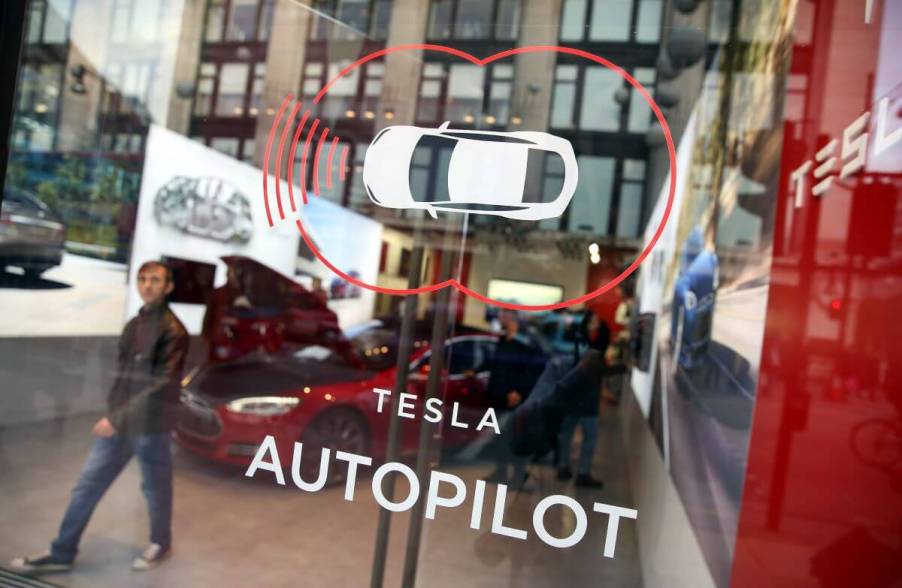
What Percent of Tesla Deaths Are Attributed to Autopilot?
Electric vehicles (EVs) have been increasing in popularity in recent years, with Tesla leading the pack. While not all EVs are equipped with Autopilot, they will be in Tesla’s dream world. Not only that, but Tesla envisions a world where all roadways are eventually filled with only wholly self-driving vehicles.
Unfortunately for Tesla, some serious work and development must be achieved before this dream can be realized. For one, Tesla hasn’t even perfected its own Autopilot system yet, as a handful of Tesla-related deaths can be attributed to Autopilot malfunctions. Here’s a complete look at the percentage of Tesla deaths that are believed to be correlated to Autopilot malfunctions in recent years.
Reports that Autopilot is responsible for a small percentage of deaths
The first generation Tesla Roadsters began rolling off the production line in 2008. Over the last decade and a half, Tesla has evolved quite a bit from its first-generation Roadster model. Since 2014, all Tesla vehicles have been equipped with Autopilot, an advanced driver-assistance system (ADAS). However, the introduction of the Tesla Autopilot hasn’t come without a few hiccups.
Unfortunately, many Tesla deaths have been attributed to Tesla Autopilot malfunctions over the last decade. According to the website TeslaDeaths, there have been a total of 373 reported Tesla crashes that resulted in fatalities. Of these reported Tesla deaths, 19 are reportedly due to Tesla Autopilot malfunctions. This means around 5% of all Tesla deaths can be attributed to Autopilot being activated during a Tesla crash.
There are some limitations to Autopilot reports
While TeslaDeaths reports that only 5% of Tesla crashes that resulted in deaths can be attributed to Autopilot malfunctions, this data may have limitations. For example, the data only considers instances where it was verified that Autopilot was activated during a Tesla crash that resulted in a death. This means there could be other instances that Autopilot malfunctioned, but it can’t be verified.
This data is also limited when looking specifically at Autopilot malfunctions because it only accounts for crashes that resulted in fatalities. When non-fatal accidents occurred due to Tesla Autopilot malfunctions, data was not consistently recorded during these non-fatal crashes.
Tesla Autopilot has become a controversial topic in recent years

It’s no surprise that after several Tesla deaths have been correlated to malfunctions in the Tesla Autopilot system, Autopilot has come under fire. According to The New York Times, Tesla’s self-driving and Autopilot technology is now under scrutiny by the Justice Department. In fact, Federal U.S. officials have even asked Tesla to supply documents related to the company’s self-driving software after several autopilot-related crashes have occurred on U.S. roadways.
Tesla has already received a number of lawsuits from Tesla owners over Autopilot malfunctions and simply for the technology not living up to the hype and promises that Elon Musk presented. Now, Tesla might be facing lawsuits or at least stricter regulations from the U.S. government. The National Highway Traffic Safety Administration (NHTSA), the primary auto safety regulator in the States, is currently investigating Tesla Autopilot after being made aware that there have recently been 35 crashes due to Autopilot malfunctions, including nine crashes that resulted in fatalities.
Despite the backlash, Tesla and Elon Musk remain firm in believing that Autopilot is safer than ordinary driving. However, not all autonomous vehicle experts agree with these bold claims. According to CNN, the data that Tesla uses to support its safety claims regarding Autopilot is like comparing apples to oranges. Only time will tell what’s next for Elon Musk and Tesla’s self-driving initiatives. While increased regulations may slow down the production rates that Musk wants to achieve, it will undoubtedly be worth it if Tesla Autopilot and Full-Self Driving (FSD) can be made safer for everyone on the road.


